The Third GoldenBee CSR Academic Seminar held in Beijing
2020-12-11未知责任编辑0
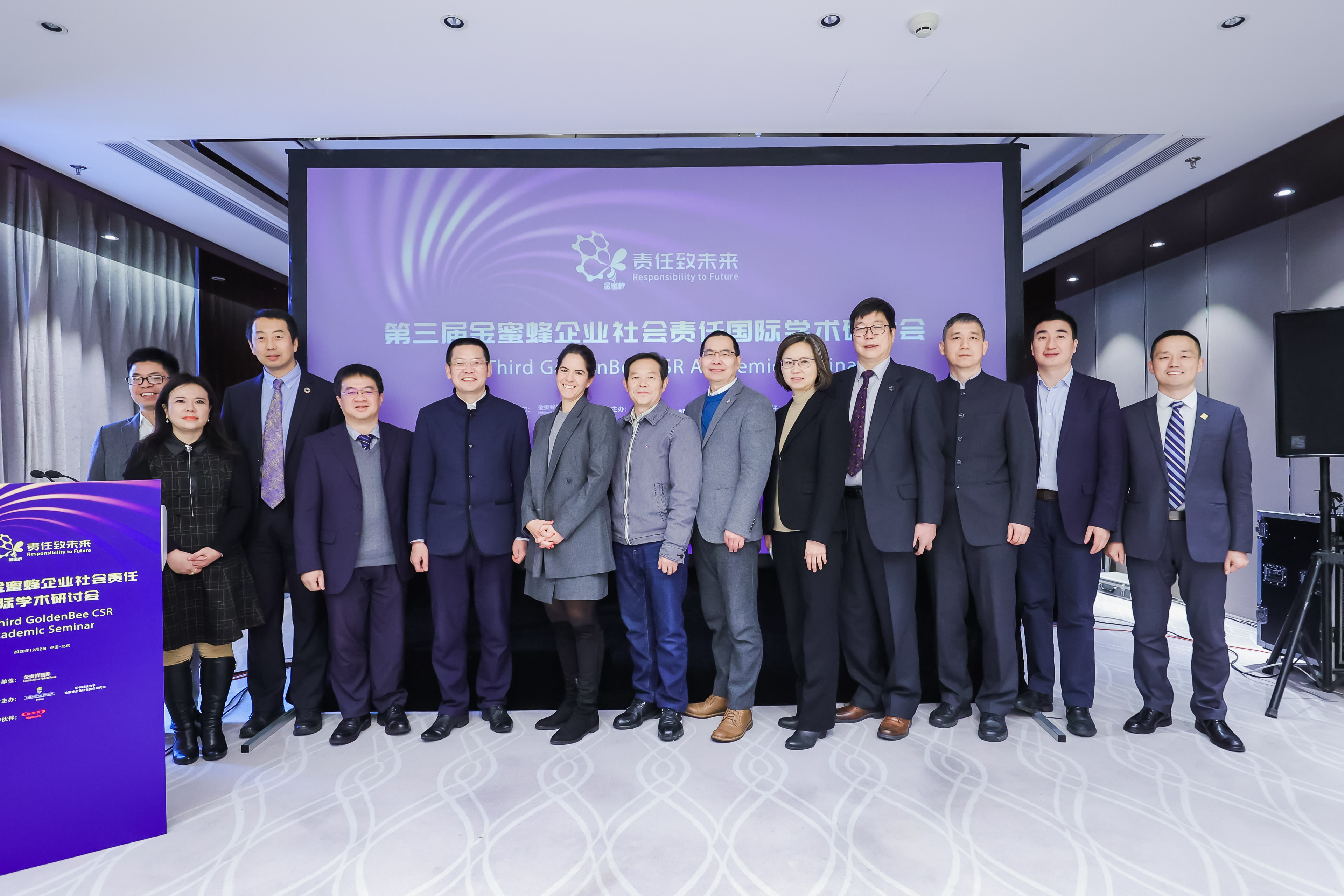
On December 2, the Third GoldenBee CSR Academic Seminar was held in Beijing. Domestic and foreign experts, scholars, and business representatives shared the latest CSR academic research, progress in CSR education and CSR practices at the event to jointly explore new ideas and paths for the CSR development.
This seminar is hosted by GoldenBee Thinktank, co-hosted by Embassy of Sweden in Beijing, HUST-GoldenBee CSR Research Institute, and supported by Yakult (China) Corporation. The live streaming platform of the seminar attracted 96,000 online visits.
This seminar is hosted by GoldenBee Thinktank, co-hosted by Embassy of Sweden in Beijing, HUST-GoldenBee CSR Research Institute, and supported by Yakult (China) Corporation. The live streaming platform of the seminar attracted 96,000 online visits.
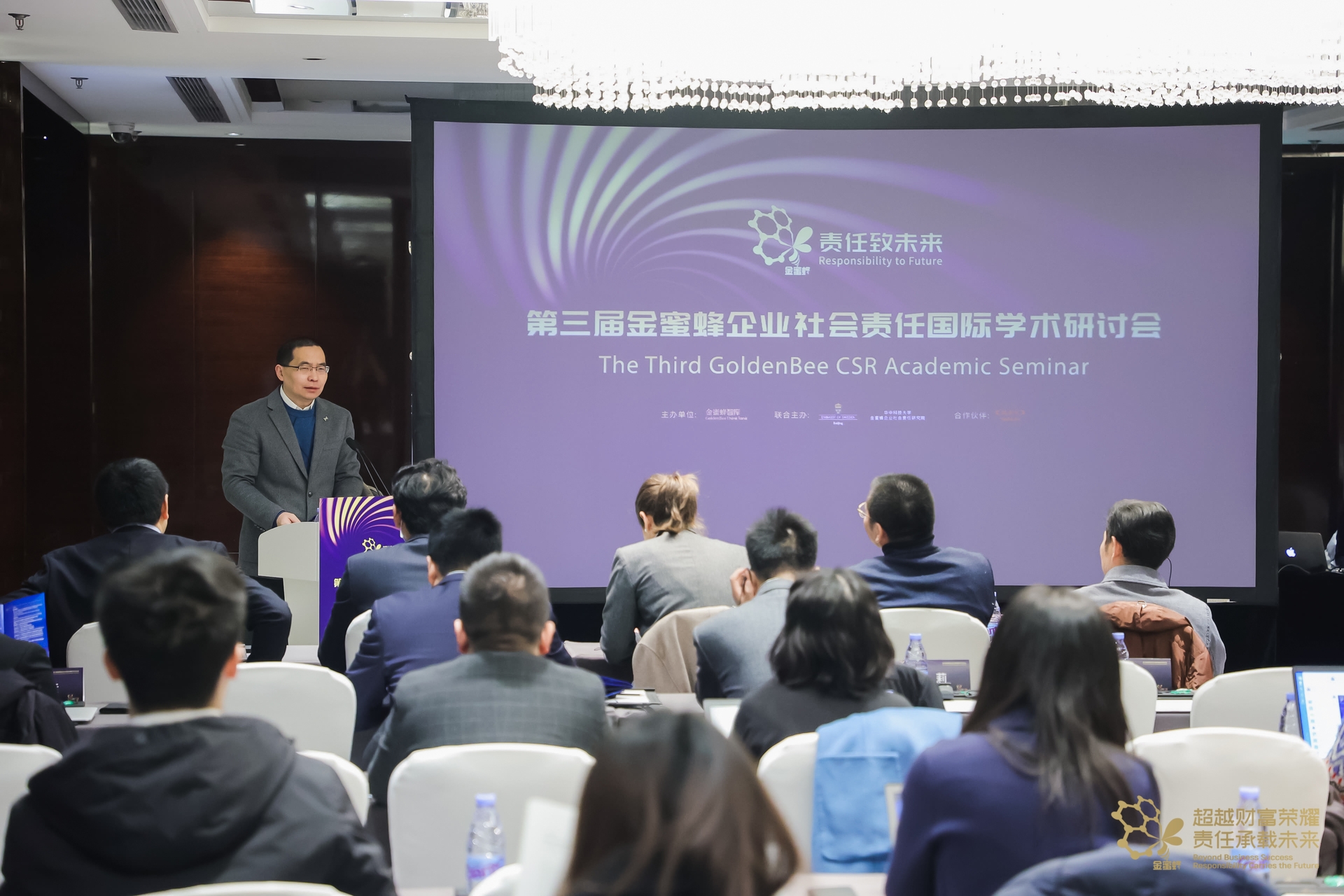
Moderated by Liu Chengbin, Executive Dean of HUST-GoldenBee CSR Research Institute, Deputy Dean and PhD Supervisor of School of Sociology, Huazhong University of Science and Technology(HUST), the seminar invited Prof. Lei Hong, Dean of HUST-GoldenBee CSR Research Institute, Paola Albornoz, First Secretary, Responsible Trade (CSR), Embassy of Sweden in Beijing, and Yin Gefei, Founder and Chief Expert of GoldenBee ThinkTank to deliver the welcoming addresses.
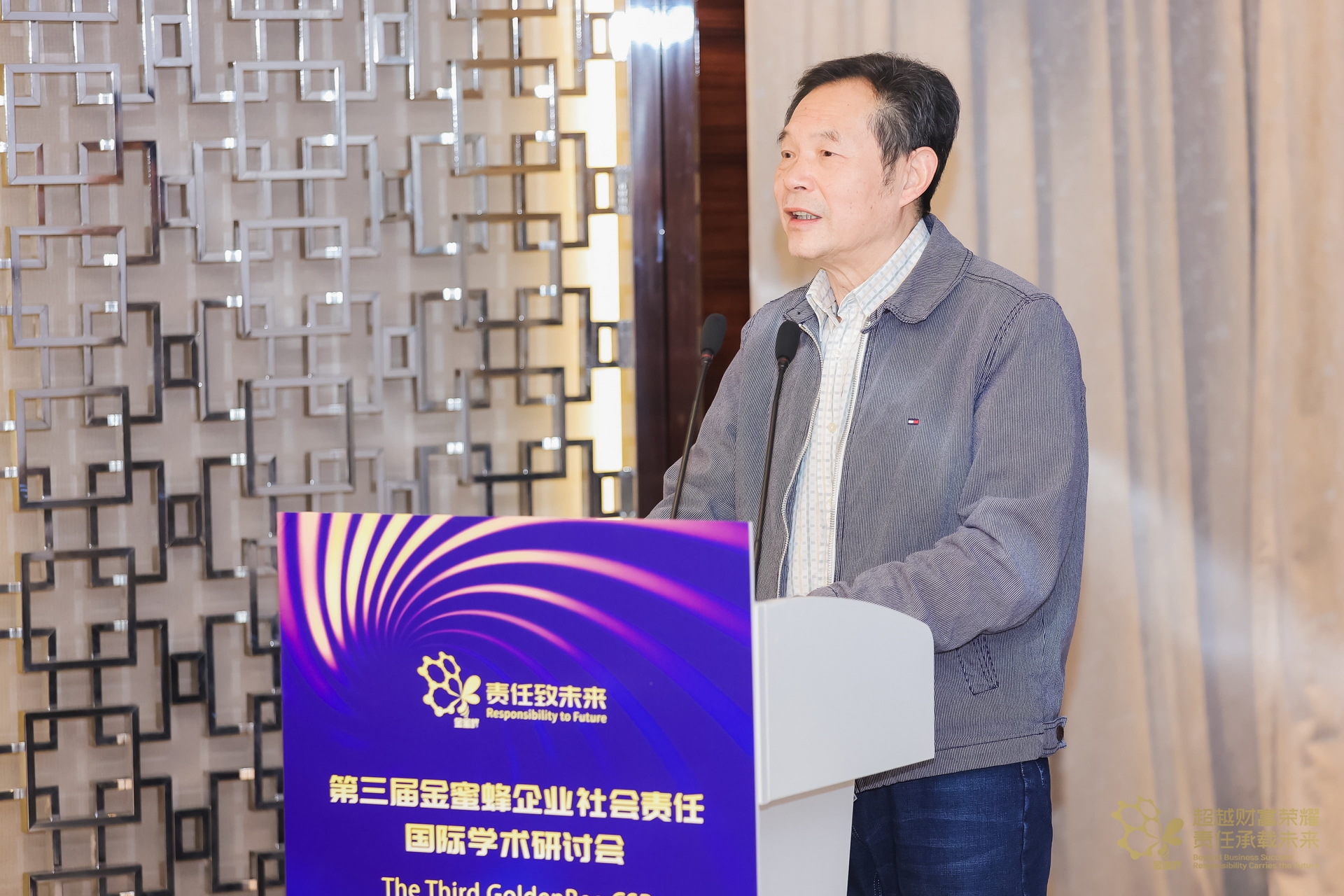
Prof. Lei said that in 2020 when the COVID-19 is rampant around the world, the legal, moral and practical significance of CSR to the global economic and social development has become increasingly prominent. China’s strong prevention and control measures ensured the smooth resumption of work and production, which demonstrated the great role and practical value of the government, business, social organizations and other sectors in fulfilling their social responsibilities. Prof. Lei hoped that there will be more exchanges between the academia and business circle to accelerate the theoretical research, CSR education and practice so as to contribute to China's economic and social development and a community of shared future for mankind.
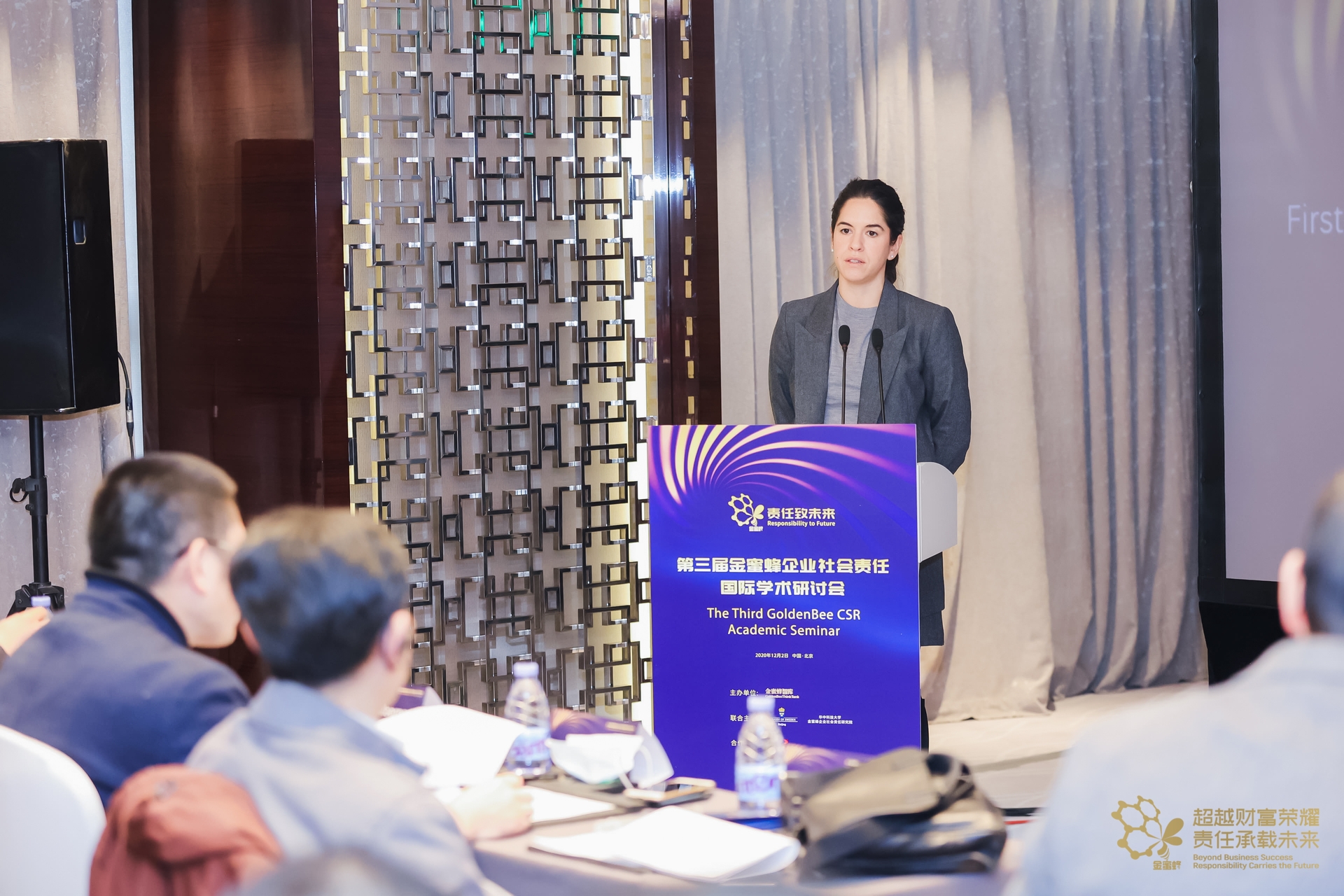
Paola Albornoz, Responsible Trade (CSR), Embassy of Sweden in Beijing, introduced the sustainability research and practice in Swedish politics, academia and industries. In Sweden, sustainability and CSR have been recognized as a very important step in the future business management and business model, and this awareness is reflected in Sweden's education, research, business practice and daily life.
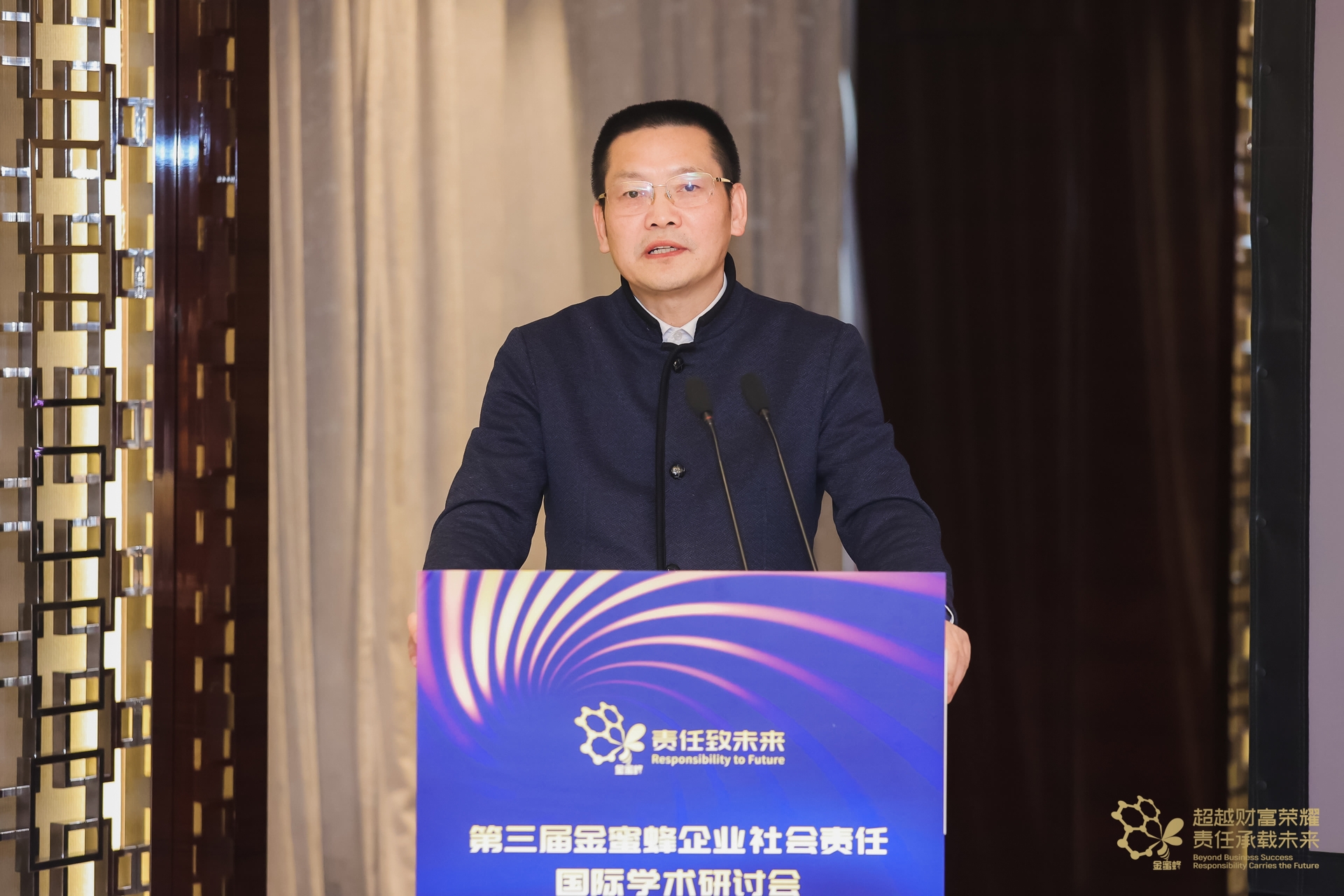
Yin Gefei, Chief Expert of GoldenBee ThinkTank, stressed that the academia plays a great role in promoting the CSR development. It is difficult for sustainable and healthy CSR development without the support of the academia. Two years ago, GoldenBee ThinkTank launched the CSR academic seminar, hoping to build an international academic exchange platform where the academia can be leveraged to promote the CSR development and promote the cultivation of CSR international talents, with the strong support of domestic and foreign experts, scholars and leading enterprises.
Sharing international frontier theories and practices
Sharing international frontier theories and practices
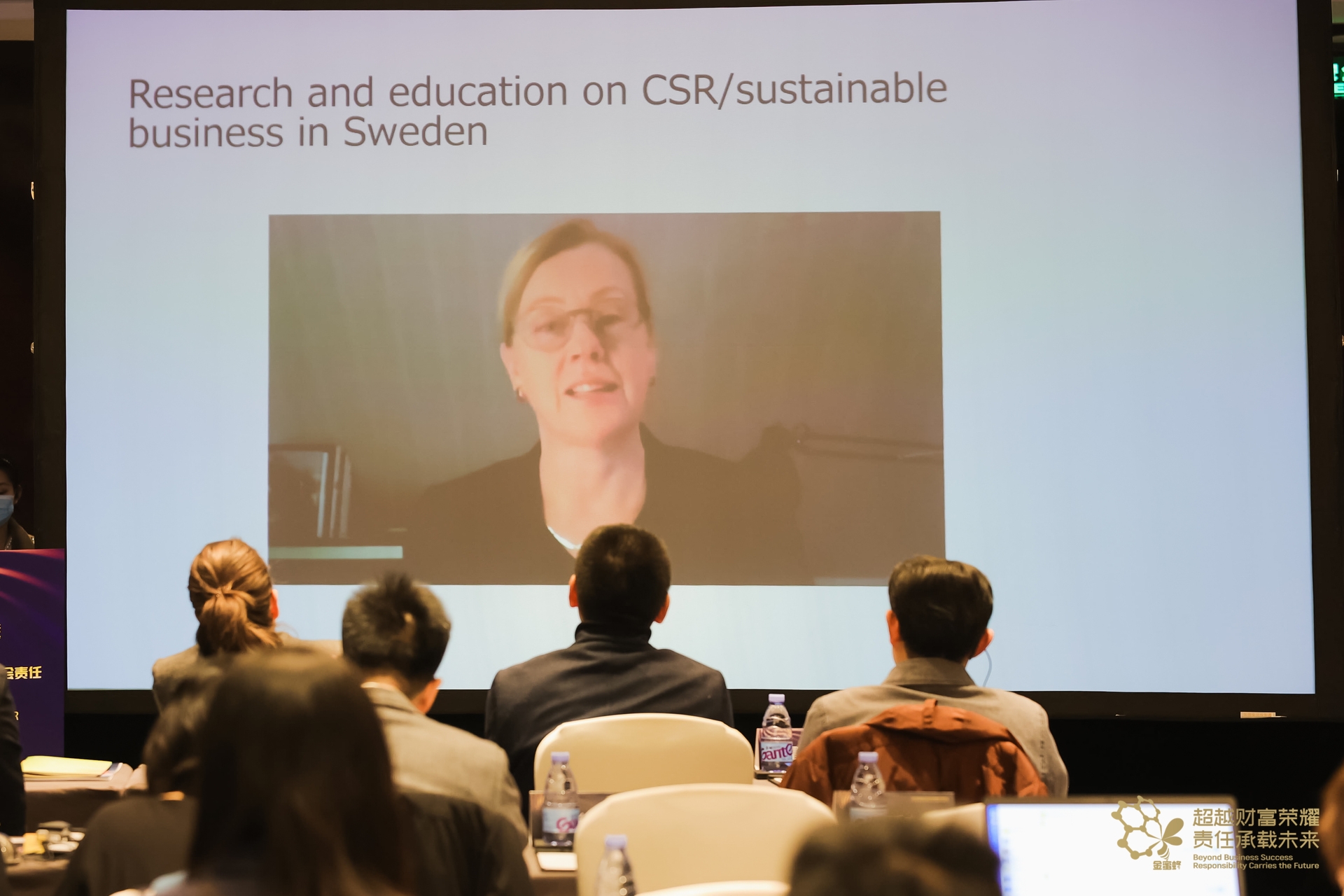
In the keynote speech, Ulrika Hasselgren, Independent Consultant, Former Global Head of Sustainability & Impact Investment at Danske Bank, shared the sustainability research and education projects by three Swedish research institutions, and courses offered by Swedish universities. After decades of publicity by the Swedish government, CSR and sustainable development have been well recognized by the public.
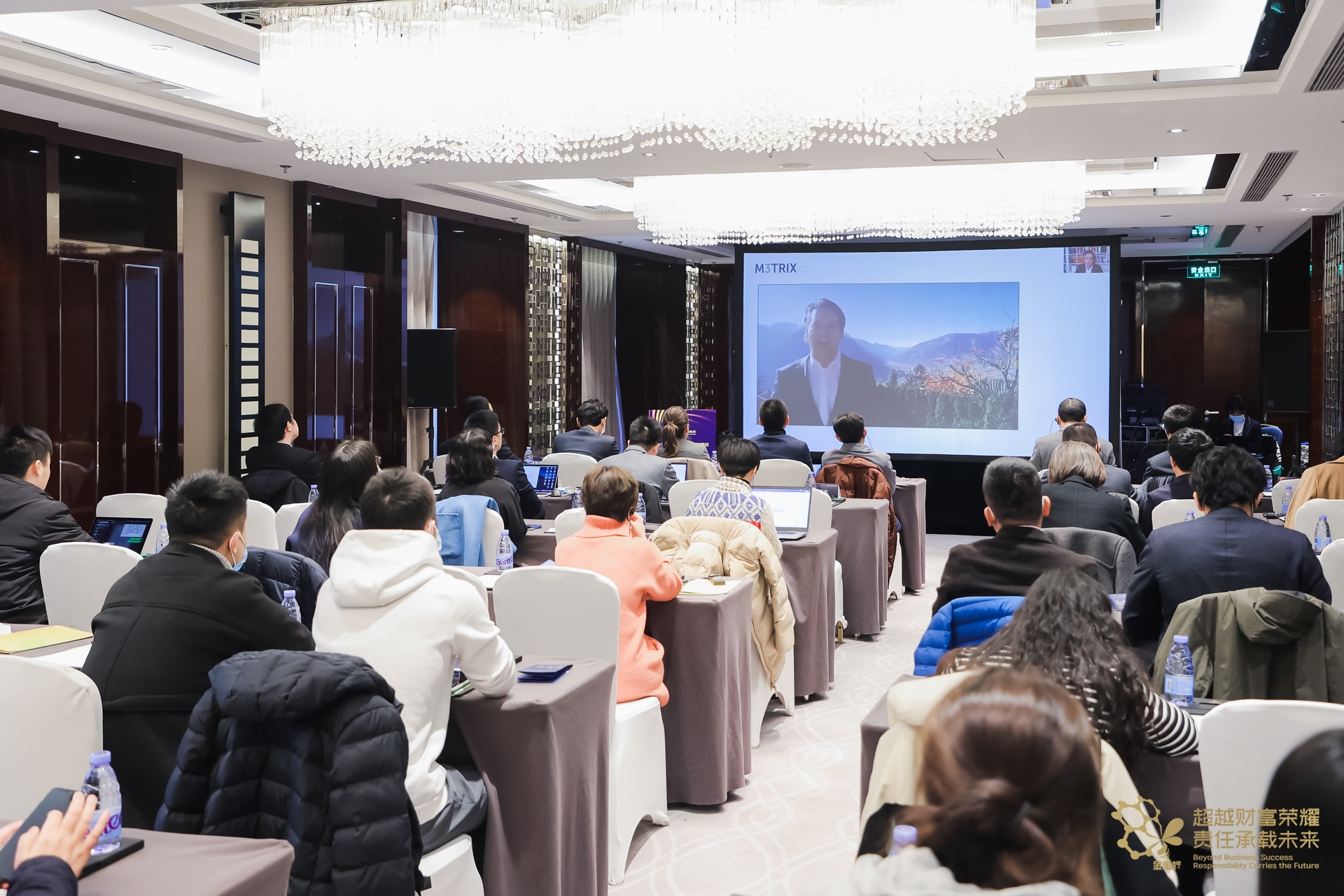
Patrick Bungard, Managing Director of M3TRIX Institute for Sustainable Transformation, thought that the sustainability transformation has become a global trend. Businesses are constantly under the pressure of sustainable development from civil society and politics. The concept of sustainability should be incorporated into the overall economic decision-making, and businesses should combine sustainable development with profitability for better development.
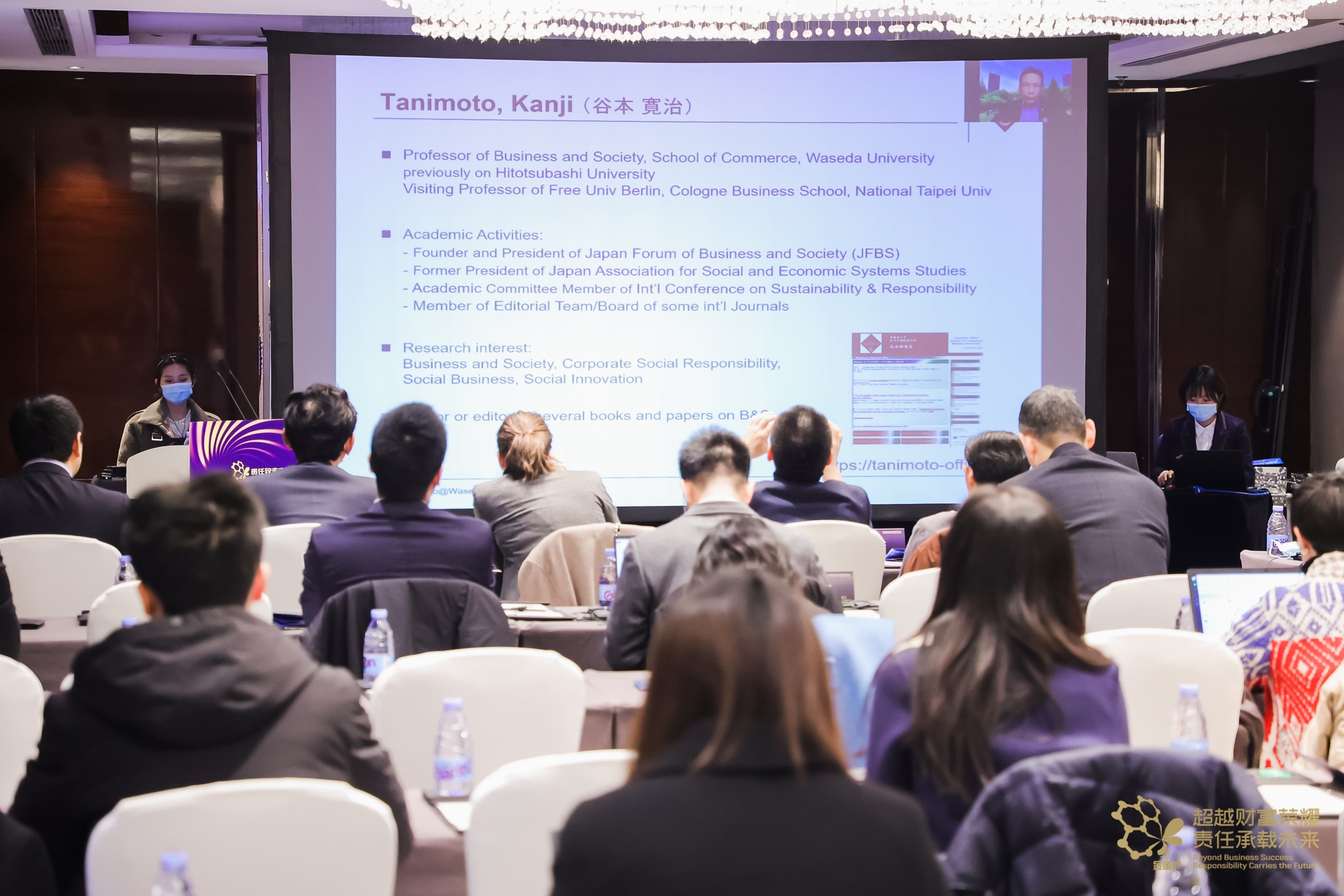
Prof. Kanji Tanimoto, Professor of Business and Society at the School of Commerce, Waseda University, shared the CSR education issues in Japanese universities. He mentioned that not all business schools in Japan are interested in sustainability at present and it is needed to think about how to integrate CSR and sustainability into education modules at this stage.
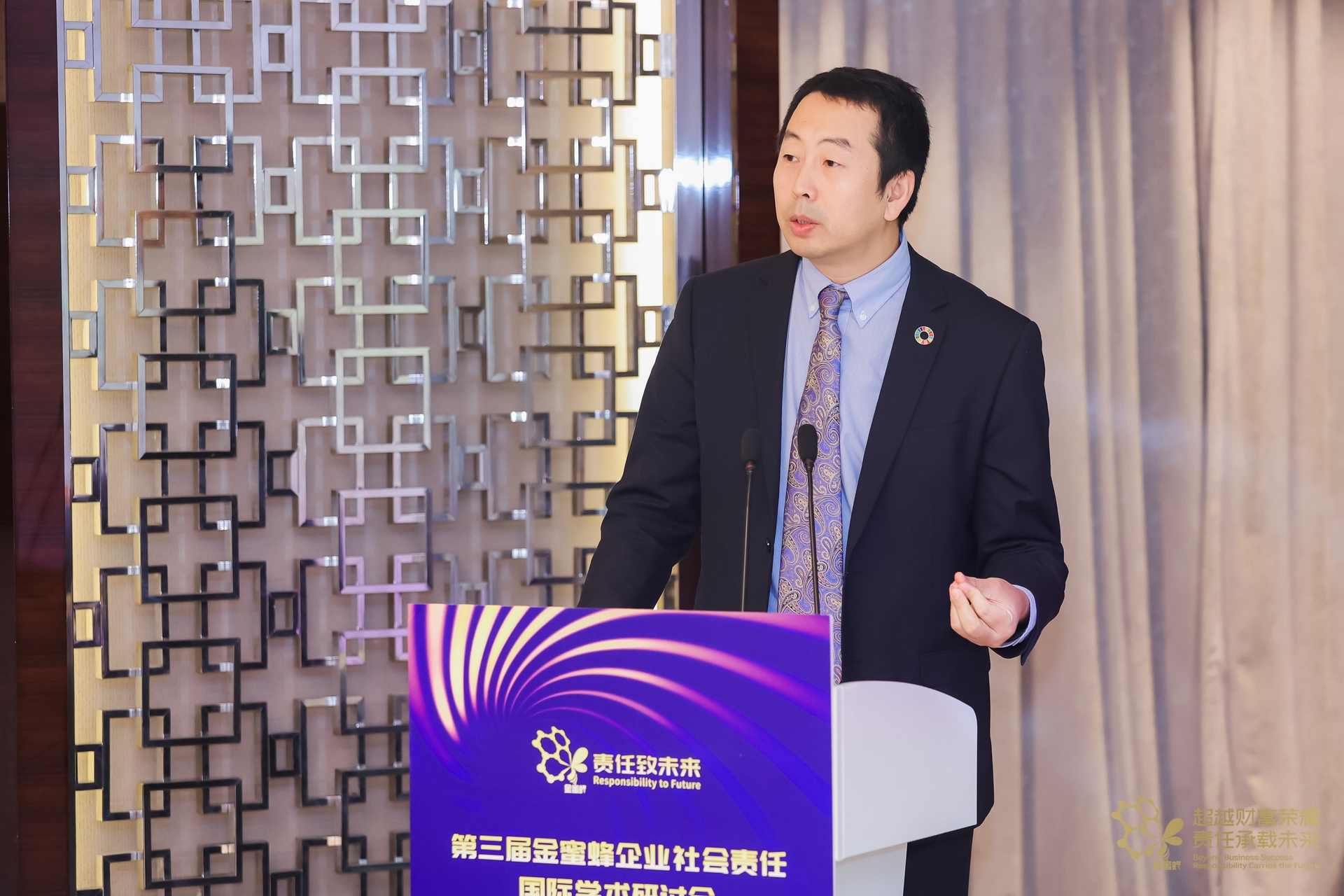
Cao Xuanwei, Associate Professor of International Business School, Xi’an Jiaotong-Liverpool University, introduced the sustainability education in business schools of Chinese universities, and put forward some thoughts on how Chinese business schools will undertake responsible business and management research and how to cultivate sustainability management talents in China.
Building a platform for industry-university- research exchange
Building a platform for industry-university- research exchange
The academia guides and supports the CSR development. Prof. Liu Chengbin and Li Li, Associate Research Fellow, University of International Business and Economics, moderated the session "Perspectives from the Academia". Seven professors and experts from China's well-known universities and research institutes shared their research topics.
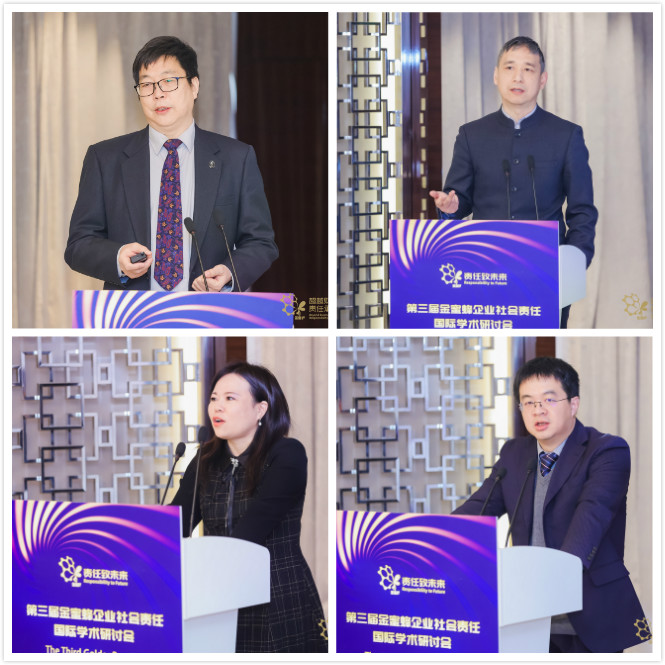
Panel I: Perspectives from the Academia
Prof. Zhou Weizhong, Professor at Business School, Director of China Enterprise Research Center at Central University of Finance and Economics, introduced the status-quo and subjects of the platform-based CSR, and the challenges to social ethics and market order in the process of rapid expansion of Chinese platform-based enterprises. Prof. Zhao Yandong, Department of Sociology, Renmin University of China, shared the historical evolution of innovation and the social challenges that innovation brings at the economic, social and ethical levels. Prof. Zhang Li, China University of Political Science and Law, shared the research topic of family care for the aged and community service responsibility based on cases and questionnaire survey, bringing new thinking on the traditional Chinese culture of raising children to defend aged. In view of the unbalanced distribution of high-end and low-end industrial chains in developed and developing countries under the background of globalization, Prof. Guo Yi, Professor at School of International Economics and Management, Director of Business Environment Research Center, Beijing Technology and Business University, proposed the social ecological reconstruction of business system and the thinking of sustainable development.

Panel II: Perspectives from the Academia
Other three experts, from a micro perspective, especially the perspective of human beings, focused on the expectations of stakeholders. Deng Xiquan, Director of the Youth Research Institute of China Youth & Children Research Center, raised the issue of youth development and CSR, and called on more enterprises to formulate and improve youth development plan. In the context of poverty alleviation, Deng Suo, Associate Professor of Department of Sociology, Peking University, discussed children issues and the relationship between child protection and CSR, and proposed that children's social protection policies need multi-sectoral joint efforts. Shao Kaiyu, Lecturer of China University of Political Science and Law, introduced the establishment of power relationship in CSR publicity and that enterprises should also pay attention to the concern of stakeholders in CSR communication.
Business practice relies on CSR research and academic research guides business practices. In the session "Perspectives from Business Circle" moderated by Guan Zhuzhu, Executive Dean of HUST-GoldenBee CSR Research Institute, business representatives introduced their CSR concepts and practices, and demonstrated their innovative ability in social responsibility.
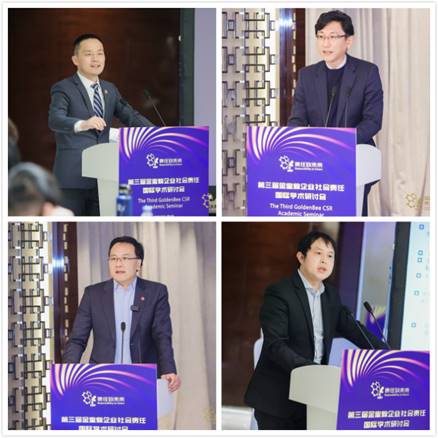
Perspectives from Business Circle
Sasaoka Isamu, Executive Manager of Public Relations Department, Yakult (China) Corporation, introduced the sustainable development course of Yakult, the latest progress of Yakult in food nutrition, health and safety, science popularization, scientific research and public charity. Dr. Wang Haishan, CEO of Beijing ZhongJianXie Certification Centre Co., Ltd, reviewed the typical practice and challenges of social responsibility faced by the engineering and construction industry. Tan Jijia, Deputy Director of Research Office, Beijing Enterprises Group Company Limited, shared the company's plan for rural sewage treatment, providing ideas for rural vitalization.
In this seminar, speakers online and offline discussed the forward-looking CSR research results and contributed to the industry- university-research cooperation and the transformation of frontier CSR theory into business management.
Up to now, GoldenBee ThinkTank has successfully hosted three GoldenBee CSR academic seminars, building an international exchange and cooperation platform between the academia and business circles.
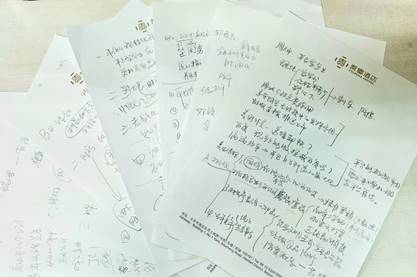
Fruitful harvest from a professor
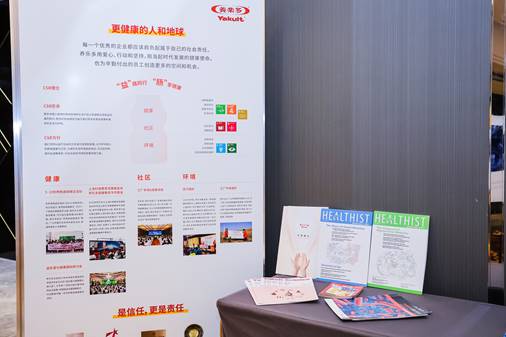
Yakult’s CSR practice exhibition
Click here to review the seminar: http://live.163.com/room/232266.html.
Best Practices
- The 100-year brand — Air Liquide also has a sense of juvenile
- Beijing Public Transportation Corporation: Developing green transportation to build a harmonious and livable capital
- CGN: Building a modern factory in barren deserts and developing a new win-win cooperation model along “Belt and Road”
Upcoming Event

All the materials on the site “Source: XXX (not from this site)” have been reprinted from other media. They do not imply the agreement by the site.
All the materials with “Source: CSR-China Website” are the copyright of CSR-China Website. None of them may be used in any form or by any means without permission from CSR-China Website.
GoldenBee Official WeChat
Copyright © Csr-china.net All Right Reserved.
京ICP备19010813号










